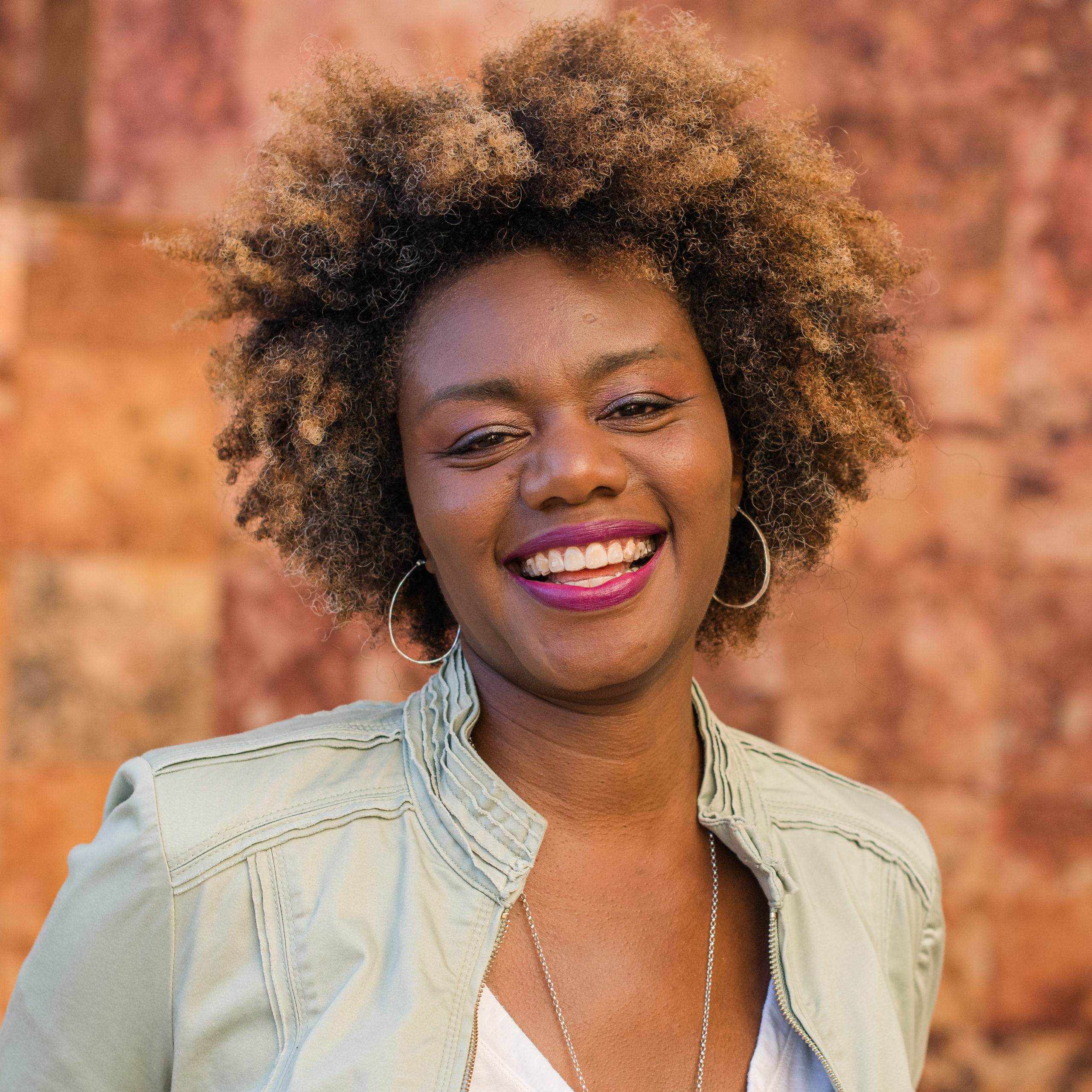Immediately, at the start of our relationship, my husband, who is white, recognized the significance of my African-American family’s tradition of a weekend-long celebration of unity, gathering, and breaking bread together. The commemoration of roots so resilient, that we persevered through enslavement, the Black codes, Jim Crow, and other demoralizing policies and practices is now his and our children’s inheritance.
For eighty years, our extended family has consistently gathered on a Sunday, at a small country church under the August summer sun to commemorate and celebrate our union. The branches and arms of our family tree travel from all over the country and locally to descend upon a small acreage, host to a central place of worship and a church graveyard where many relatives have been laid to rest. After Friday’s meet-and-greet and Saturday’s cookout at the park, Sunday sings to our souls the songs of those who have gone before us.
When I was a child, attending the 11 am Sunday service was like traveling back in time. Two factory fans, one placed at the front of the left aisle and the other situated on the right, attempted to force the heavy, sticky, hot air into a light airy breeze. The giant fans failed. The noisy blades propelling at maximum speed seemed to only provide busy noise. However, the cacophony was no match for the choir who belted out centuries-old spirituals or the preacher professing a two-thousand-year-old gospel. As a child, I didn’t like this church service. The pews were hard, the air was hot, and the preacher preached too long. However, even as a child, I sensed that this time served as a historical monument preserving a particular and significant story about God’s love for us.
After the final “amen,” the double doors opened, and uncles, grandmothers, and cousins poured from the back of the church onto the lawn in the noonday heat. Three-piece suits, floral pastel sundresses, wide-brimmed hats, and brightly colored scarves gave way to shorts and family-reunion-themed T-shirts. Then it was time for the annual picnic. When my grandmother was alive, she cooked for days in preparation for the family picnic. Once the tables were set, one of the family clergy — there are always several — pronounced a blessing over the food, the family, and the gathering.
After we’d feast, we’d walk. We’d hold the hands of our children and guide them a few yards from the picnic ground through the Carolina red dirt to the graveyard. We strolled the rows of tombstones and burial plots reciting their names and telling their stories. Some were slaves of the Methodist pastor of Old Salem. Many were named after their enslavers. A few were mulatto — one was even buried in the white cemetery. They were pastors, evangelists, missionaries, and church planters, teachers, librarians, wagon makers, pullman porters, and blacksmiths. They served on the Colored School Board, in WWI, and in WWII.
Though they were marginalized, their lives, their stories, and existence screamed resilience. Their lives were deemed insignificant by a dominating force of racial injustice. However, when we hear their stories, we hold their stories and glean from them truths about God. Their lives are a witness to how God loves us, sees us, and values us regardless of the marginalizing social, political, and economic stranglehold we live in.
I think about my grandmother, who when she was a girl, was “hired” as a housekeeper in a small, country town ten miles away from her home. When she was told that she would be sleeping on the back porch, she left, walked the ten miles back home, and refused to return. And as an adult, because she refused to give up her seat on the bus to a white person, she was arrested. How many times did she feel like Hagar, unloved and unprotected by society’s caste system? Like Hagar, how difficult was it for her to choose dignity over income or shelter?
While Abraham and Sarah referred to her as “slave,” God met Hagar in a place of desolation and despair and called her by name. God not only knew Hagar’s name but by using it showed her respect. From Hagar’s story, we learn so much about God. Hagar’s story reveals God as El Roi — a God who sees, a God “who looks after me” (Genesis 16:13 ESV). In seeing Hagar, God affirms her dignity and that of marginalized and exploited peoples. In Hagar’s story, I see that though the prevailing custom is one of apathy, God cares!
The names and lives of our family members who have gone before us are not only captured on tombstones but are engraved into God’s palm. Like Hagar, despite her plight of being treated as disposable and inconsequential, God knew my grandmother’s name and respected her. I imagine as she walked away from humiliation and disrespect, God said, “Virginia, I love you, I care for you, and I am looking after you and your family.” I also imagine that God’s seeing her was the source of her and her family’s resilience.
Even if you’ve been marginalized by a dominant force, feel excluded or forgotten, know that El Roi sees you, knows your name, and cares. And when you know you are seen, God’s care can transform distress into a testimony of resilience.
Leave a Comment






What a powerful tradition to honor your family’s heritage…Thank you for sharing.
HI Elizabeth!
My family reunion is one of my favorite traditions. Thank you for reading.
Shalom
LCB
Beautifully told! We don’t have anything like that in our family. It’s fragmented and hollow. I am the first Bible believing Christian that I know of in my family line. There were others that went to church… I grew up in the Episcopal church, but never knew that I had to receive of Jesus on my own to belong to the Father until I was in my 20’s! My husband and I are creating a new heritage for our family line in how we are raising our children. It’s not the same as yours, not as rich and deep in time, but I’m thankful to be where we are.
Hi Michelle.
Thank you for reading and appreciated my family’s story. We are fortunate that an ancestor thought to create this gathering and tradition. I am excited about the future you are creating for your family. Your descendants will celebrate you.
Shalom
LCB
Thanks for sharing. My daughter, who is white is married to a black man, has given me insight to some of the injustices. I’m sorry. Congratulations for having a strong family heritage. Congratulations on all of your accomplishments in spite of history. You’re awesome!
Hi Rita!
Thank you for reading and appreciated my family’s story.
And thank you for being open to learning about the experience of others. You are a gem. I sincerely appreciate your words of encouragement!
Shalom
LCB
Lucretia,
It is sad that many people disrespect others due to their race, color or creed. We are supposed to be a loving Christian nation, but that has changed. It seems that some can’t get over their hatred of others. You have a great family history reminding the young children of what happened to their ancestors. George Santayana said Those who cannot remember the past are condemned to repeat it. Keep up the tradition of telling your history. We need to hear those stories over and over so we don’t forget & repeat it again.
Blessings 🙂
Hi Beth!
Thank you for reading and appreciating my family’s story.
“Those who cannot remember the past are condemned to repeat it.” YES!! We can celebrate accomplishments, but we also need to take an account of the missteps so we can purpose to do better.
I sincerely appreciate your words of encouragement!
Shalom
LCB
Lucretia, thank you. Your words and testimony are powerful. We need to hear more from you.
Hi Sharon!
Thank you so much for reading and appreciating my family’s story.
And thank you so much for your words of encouragement.
Shalom
LCB
Lucretia, thank you for sharing a tender and powerful tradition of your family! The words of hope and encouragement leaped off your post anointed by the Holy Spirit! May God continue to bless you and your family.
Hi Nadia!
Thank you for reading and appreciating my family’s story! I am so happy to know that you experienced hope and encouragement.
I sincerely appreciate your words of encouragement.
Shalom
LCB
We all have Heritage from were we come from. From were we belong all over the world. When we look down the line at our families beyond our sisters and brothers etc. To our cousin etc we might find they are different colors to us. Their parents one might be the same color to us. The cousin the same color as one parent. The other parent a different color. We seem to pass no remarks. We are brought up to like our Cousin. Her parents. If met both. If not met both. I met my cousin and her mum my aunt. They are not different color skin. Never her Dad. But you grew up you passed no remarks. You just liked them. That the way the world should be. Everyone liking either. Man looks at appearance. Gods looks at the heart. It sad as God see everything we do and say. We especially if saved and God’s Children should look not at skin color. Look at people from the heart. Not their color. Once on the news. I saw a women who had brown skin she was in tears. Saying why do people look at people like me because of my skin color. Why don’t they look beyond that. Look at me as person for who I am. Look at my heart. My own heart went out to her. It reminds me of the scriptures in Luke 6 35 -38 Don’t Condemn Others it is about. We are to also stop Judging others and criticizing and forgive plus if we do these things we will receive the gift God has for us in full measure depending on how we treated people of all skin colors. If you read the rest of the verses in Luke 6 39 – 41 it talks about not having a log in your own eye. Meaning not to talk about people of different skin colors in Jesus eyes. But love them like Jesus would as it wrong. Then you see better and have more love to give out to everyone of all Skin colors. That what Jesus wants us to do. Love Dawn Ferguson-Little xxxxx
HI Dawn!
Thank you for reading and appreciating my family’s story! And thank you for sharing your story of love.
I sincerely appreciate your words of encouragement.
Shalom
LCB
I love this story! As I was reading, I was impressed at how important it is for others to learn from your family’s tradition of the gathering. I want to encourage you, if you haven’t already, to consider writing a picture book manuscript about the gathering. What a wonderful tribute.
HI Sandy!
Thank you for reading and appreciating my family’s story!
When my aunt read this post, she said the same thing — that I should assemble a book. What a great idea!
I sincerely appreciate your words of encouragement.
Shalom
LCB
Lucretcia. thanks for sharing the story of your family’s wonderful traditions with us today. It would be great for all families to do that! National as well as familial traditions should be passed down. It gives us a sense of belonging and unity which are good things. Instead of focusing on what divides us, we need to focus on what we all have in common especially as children of God. My family on both sides came to colonial America seeking a new life free from religious persecution. They too had to be resilient as there were many hardships for them beginning with nothing in a new land, so resiliency is a legacy of mine as well. Michelle, I too, was an adult (in my early thirties) before I understood that what was missing in my life was a personal relationship with the Father through His Son Jesus. What a difference it has made in my life! I am now 78 and still loving my Savior and loving others by the grace of God. Love and peace to all!
Hi Karen!
Thank you for reading and appreciating my family’s story!
When we know our histories, we have context for our present, and can more confidently walk towards our hope-filled futures.
I sincerely appreciate your words of encouragement.
Shalom
LCB
When I read your powerful family story I was reminded of a phrase that I often hear in my mind. There is none so blind as he who will not see.
No matter our circumstances, we will always rise above them as long as we have Christ.
Too often like little children we focus on what we don’t have instead of what we do have. With Christ we are more than conquerors.
Remember the Apostle Paul, he accomplished more behind bars than most people do while free. It is not our circumstances that defines us, not the color of our skin, nor the places we go, but the one in who’s footsteps we follow surely does. We can not control into which family we are born, but we can control what we choose to do with the life we are given.
My mother, at the age of nine, had to help raise her younger siblings due to her mothers death. She finished the 3 rd grade and yet she could read and write better than most adults I know. She was not only smart but she didn’t waste time feeling sorry for herself. She had neither the time nor the inclination. By the time she was 44, she had lost 3 children and a husband. She had many health issues. Yet nothing erased the smile from her face nor the sound of her laughter.
Like I said we might not be able to decide what family we are born into but we can decide how we are to live the life we given.
I love listening to stories about family and how people have overcome their circumstances. It gives me hope and a model of how I might handle life’s many trials.
Bless you Lucretia, and thank you for your story. May it give each of us hope and a model to strive for.
Hi Loretta!
Thank you for reading and appreciating my family’s story! I am so happy to know that you experienced hope and encouragement. I think stories of the resilience –especially of people who’ve been discriminated against systemically — should be central to our national historical narrative. I think it would grow empathy and cultivate hope.
I sincerely appreciate your words of encouragement.
Shalom
LCB
Hi Rita!
Thank you for reading and appreciated my family’s story.
And thank you for being open to learning about the experience of others. You are a gem. I sincerely appreciate your words of encouragement!
Shalom
LCB
Hi Loretta!
Thank you for reading and appreciating my family’s story! I am so happy to know that you experienced hope and encouragement. I think stories of the resilience –especially of people who’ve been discriminated against systemically — should be central to our national historical narrative. I think it would grow empathy and cultivate hope.
I sincerely appreciate your words of encouragement.
Shalom
LCB
Lucretia,
I love the the article. It is beautifully written. I thank God for you and the anointing He has given you. Thank you for being an instrument- linking our ancestors to the present and to future generations. Continue to serve and glorify Him in all you do.
Hi mom!
Thank you for reading and commenting. Thank you for handing me this legacy. I am so proud of our family! I am so fortunate to be your daughter. Your are a world changer. I am following your lead.
Shalom to you.
LCB